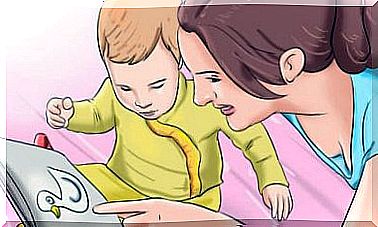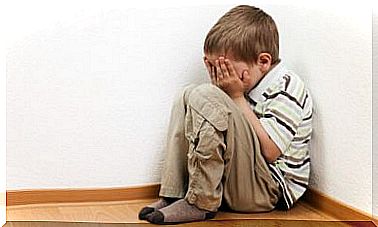Mothers Also Suffer From Burnout Syndrome
We know your anguish at the thought that you are the only one who wants to go out alone for a weekend. Who wants to go away from home, without responsibilities or schedules. We know of your faults, your extreme tiredness and your tears. And it’s not that we know how to read the mind, nor that we are soothsayers. We only know that Burnout syndrome also affects moms.
Until recently, Burnout syndrome was considered a disease that was limited to the professional sphere. The main symptoms of which are stress and physical and mental fatigue caused by long working hours. Now it is also applied to the family environment. Specifically to mothers, both first-timers and those who already have another child. Sounds logical, doesn’t it?
The so-called “work burnout syndrome” or Burnout syndrome has a higher incidence in workers subjected to hostile environments for many hours a day. I couldn’t let go of the most complicated work one can take on; raise, care for and be responsible for a child.
Burnout Syndrome: Questions and more questions
Is there no work more difficult than being dedicated exclusively to caring for the children? Is there more stress than the reality of doing and doing, and feeling like you’re never going to stop? Don’t you get anguished knowing that in 24 hours you must complete a long to-do list? Isn’t it terrible to feel tired and not be able to rest? Doesn’t it hurt to feel guilty about wanting to throw it all away?
These questions are asked daily by mothers all over the world, because effectively raising children, being connected and attentive to everything in the home, husband and being a professional is an overwhelming stage that affects us all. So you don’t have to feel guilty every time you cry, when you want to go to sleep and your baby doesn’t.
As mothers we tend to demand more than we can give. Early on our journey in caring for our children continues. As we approach noon we feel our strength is running out, but we move on. Overnight is too much. And when we finally get the baby to sleep, we want to run away and feel guilty.
If we don’t recognize that we need help, or that Burnout Syndrome is latent, and we put our hands dirty to overcome this condition, we will only allow our discomfort to get worse and the postpartum depression that happens during the first months of life of the baby stays in us for a long time.
Ask for help whenever you need it and most importantly, take time to take care of yourself.
How do I know if I have Burnout syndrome
According to experts, the symptoms of Burnout syndrome are as follows:
- Extreme tiredness. Since you wake up in the morning you feel like lying in bed doing nothing. This is because of the few hours of sleep and accumulated tiredness.
- Loss of appetite. Faced with the mountain of activities that you must perform, you end up ignoring the hours you have to eat, choosing to just eat a quick snack. You know it’s a mistake not to eat well, but fatigue is stronger.
- Discouragement and disinterest. The repetition of certain tasks, such as feeding the baby, tidying up the mess and changing diapers, makes you act automatically, assume tasks as an obligation that affects your interest in things you enjoyed before, such as listening music, cooking a delicious dessert, going for a walk, reading a book. You think devoting time to these things would be irresponsible.
- Bad mood. By not doing what you wanted, but doing what you should, your good mood will end. It will directly affect your marriage, you will distance yourself from your partner, and it will worsen your emotional state.
- Guilt. Guilt haunts you whenever you want to cry because you can’t take it anymore. When something doesn’t go as you expected, when the house is all messed up, when you don’t want to get up when you hear the baby crying in the middle of the night, when you grudgingly respond to your spouse. It seems that guilt is your closest friend in this difficult time.
If you are one of the mothers going through Burnout syndrome, don’t be afraid to accept that you can’t handle so many responsibilities alone.
Ask for help whenever you need it, and most importantly, take time to take care of yourself. If you’re okay, so will your family.
Talk to your spouse and your immediate family to tell them how you feel and the support you expect from them. You’ll find that when they collaborate, you’ll feel better. After that, you will be able to take a good look at the wonderful and chaotic world of motherhood.









